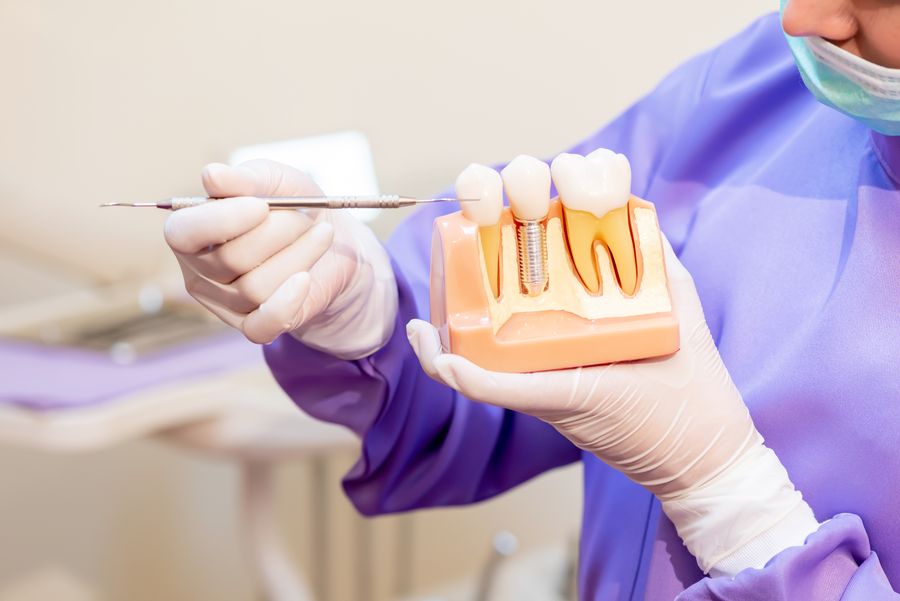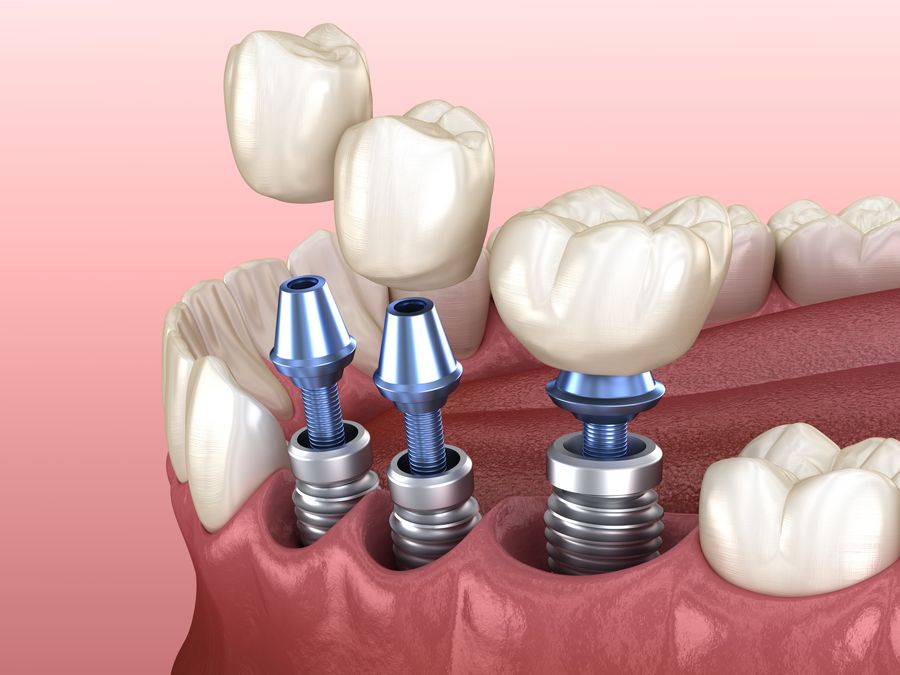How Long Do Dental Implants Last?
A dental implant is a replacement tooth made of titanium and is made to match your own natural teeth. It is a surgical fixture, placed into the jawbone in which the artificial tooth can be fastened. These artificial teeth look and work just like your natural teeth, so the surgery can be a great choice for people who are looking forward to filling the gaps caused by missing teeth.
When you have a gap, the surrounding teeth have a tendency to shift since there is no longer a tooth helping to keep the rest aligned and in place. The result is that your teeth may become crooked and sometimes, new gaps may appear between teeth.
Another common issue with a tooth gap is super-eruption. The tooth opposite the missing tooth may start to grow out from its position because there is no tooth in place to resist the growth and keep it intact. When this happens, you may typically experience some sort of light to moderate sensitivity around the super-erupted tooth.
Who Can Get Dental Implants?
Anyone healthy enough to go through a dental extraction or an oral surgery can receive dental implants. The key to receiving dental implants is that you have a sound dental foundation with gums that are in good shape and the required bone to retain the implants.
People who’ve undergone radiation therapy to the head and neck area, or with health conditions such as diabetes or heart disease, need to be evaluated before moving onto the procedure. Heavy smoking is another factor that can complicate the dental implants procedure. Your dentists will suggest to smokers to quit smoking at least two weeks prior to their surgery and for two months afterward.

Do Dental Implants Last Forever?
If you are wondering whether these implants last a lifetime, you may have wondered about the lifespan of an implant and what long-term alternatives you have for surgery. How long the implants last depends on a combination of factors. If you’re looking for implants that last up to 15 years or even up to 25 years, here’s how to make sure it will last as desired:
Oral Hygiene & After Care
Daily brushing, flossing, and routine check-ups with a dentist, preferably your implant dentist, is essential to prevent gum disease and ensure that your dental implants are in good condition, as well as your oral health. It’s also vital that you follow your dentist’s aftercare instructions so you can heal as quickly and efficiently as possible.
Implant Dentist
The success rate of your implant surgery depends a great deal on the skill of your dentist. Dental implants are carried out by oral surgeons, also referred to as maxillofacial surgeons. They have the specific training required to complete your dental implants surgery. They can rightly set the implant in place, evaluate the osseointegration process (the process where the implant will fuse with the jawbone), and rightly assess whether the fusion is complete and intact.
Location of the Implant
The position of your dental implants determines the longevity of your implants, too. There’s a greater chance of your implants falling out quicker if they are located at the back where you naturally tend to apply more strain while chewing food.
Lifestyle
Tobacco adversely affects the osseointegration process and can lead to higher chances of dental implant failure. If you want to make sure that your implants remain in good condition, avoid smoking and commit to exceptional oral habits! Oral hygiene, consistent care, and healthy living contribute to the longevity of your dental implants. After all, dental implants have a success rate of 98% and can last a lifetime.

How Do I Know If It’s Time To Replace My Dental Implants?
Visit your dentist every six months for a regular check-up and to ensure your dental implant is healthy and functioning normally. Your dentist can ensure that the implant is not loose and that you haven’t developed an infection.
Dental Implant Surgery Procedure
Usually, the implant procedure is done in various stages. The jawbone should be fully healed before moving on to the next phase.
Step 1: Preparing the Jawbone
A healthy jawbone is a pre-requisite to successful dental implants in dentistry. In some cases, the jawbone might be damaged and might not offer the desired support for an implant, in which case, you may need a bone graft to perform the surgery successfully.
Bone Grafting is a procedure in which a small bit of bone is transplanted to assist in creating a solid foundation for the implant. This bone often comes from another part of your body.
Step 2: Placing the Dental Implant
To place the dental implant, the surgeon makes a cut in your gums to reveal the bone through which holes are drilled for placing the metal post deep inside the bone. This metal post will serve as the tooth root.
Step 3: Bone Growth a.k.a Osseointegration
This is when the jawbone grows and unites with the surface of the implant, providing a solid base for your new artificial tooth, however, bone growth can occur over a span of several months.
Step 4: Placing the Abutment
An abutment is a piece upon which the artificial tooth will attach later. This is a minor outpatient procedure and will only require local anesthesia in most cases. The oral surgeon will reopen your gums to attach the abutment on your dental implants and close it back again. The healing process will take around two weeks.
Step 5: Choosing Your Artificial Teeth
After your gums have healed, the artificial tooth or crown is made. This is the part that looks like a natural tooth. The crown is mostly made of ceramic and is fastened to the abutment. It can not be placed until your jawbone is strong enough to support the use of the new tooth. You can choose between two types of artificial teeth— a removable implant prosthesis or a fixed implant prosthesis.

What Are Your Alternatives To Tooth Replacement?
When it comes to tooth replacement options, dental implants are not the best choice for some people, especially diagnosed with acute diabetes, heart disease, etc. Fortunately, there are other alternative options available to cover your missing teeth gaps.
Dentures:
Full dentures act as a replacement for all the teeth and completely cover the gums. Partial dentures are a synthetic device designed to replace some or a few missing teeth.
Bridges:
Bridges are fixed in place, and the dentist uses a special type of bonding material to install the bridge in the space. This bridge looks and functions like your natural teeth.
Always make sure that you discuss your health condition and personal preferences with your dentist so that you can find the best choice for you.


